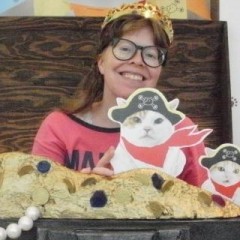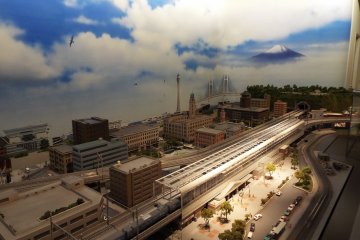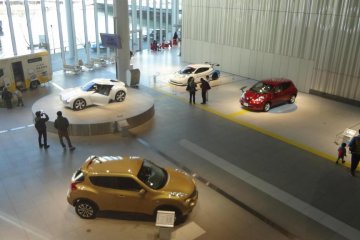People whose hobby involves collecting receive great joy from the items they gather, but those who share living quarters with a collector don’t always have the same feeling, especially when mass quantities are involved. At the urging of his wife, 1000 model trains acquired or constructed by railway enthusiast Nobutaro Hara have found their way from their Hyogo Prefecture home to the Hara Model Railway Museum in Yokohama for everyone to enjoy.
Mr. Hara was born in Tokyo in 1919, and fell in love with locomotives while very young. At age four he survived a fall from his home’s veranda during the Great Kanto Earthquake, clutching a toy train car (which is displayed today in the museum). While still an elementary school student, he made long trips to ride and photograph trains. He built his first model, an electric steam locomotive, at age thirteen, and would go on to construct more than 6000 meticulously detailed models. He learned the German and French languages for the purpose of reading books on railway technology, which he studied at Tokyo Institute of Technology. Later Mr. Hara worked at a stationery company where he contributed to the development of automating machinery, but he spent much of his spare time with his beloved model trains.
Many museums have asked Mr. Hara to exhibit his collection with them. He decided upon lending trains to the museum on the second floor of the Mitsui building in Yokohama, a city that was one of the terminal stops on the first railway in Japan. Since July 2012, visitors here have been able to appreciate Mr. Hara’s collection of model trains as well as other memorabilia he accumulated during his railway journeys, such as tickets, schedule books, and nameplates from trains and stations. A photo of the Shangri-La Railway Museum, which Mr. Hara built in his home, takes up an entire wall. Bilingual placards give fascinating anecdotes, including one about Eastern European officials suspecting Mr. Hara of espionage and nearly arresting him as he photographed the Orient Express during the Cold War. The resulting model is displayed with the roof open to show the train’s ornate ceiling lights.
Visitors may feel they have stepped into another world as they enter the section of the museum called Ichiban Tetumo Park, a massive diorama depicting the trains traveling around a city and mountains. Lights in the ceiling of the room, as well as in the buildings of the miniature city, dim and brighten at regular intervals to mimic night and day, while red-jacketed staff members give information over the public address system and TV monitors about the types of model trains running. A smaller diorama in the next room shows Yokohama, with its monuments such as the Marine Tower, and models of the area’s railway lines.
Here’s wishing Mr. Hara many more years of enjoying his hobby and sharing the pleasure of trains with the world.











